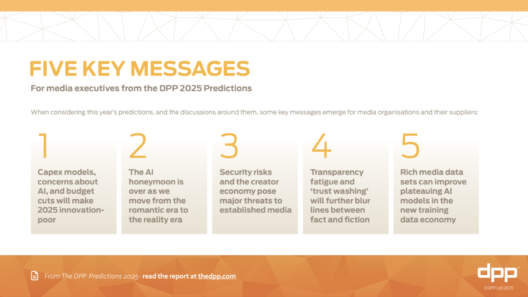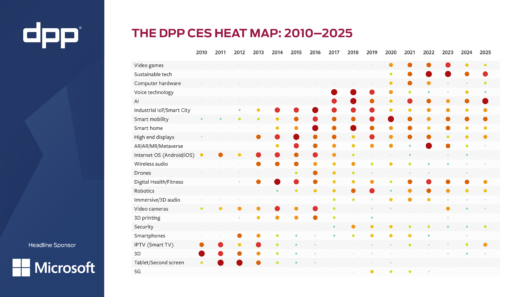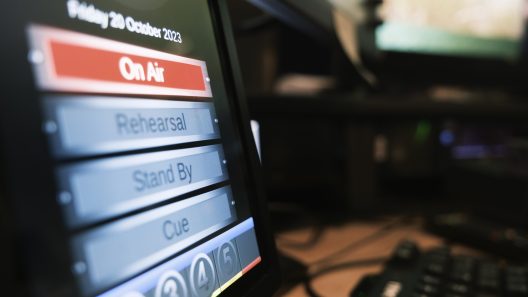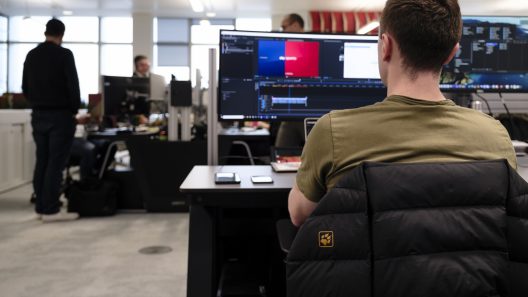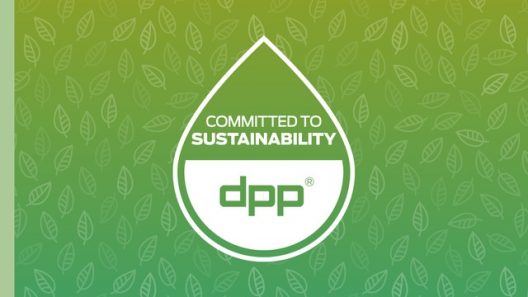
Sustainability has long been a buzzword in corporate strategy, but as 2024 marches on, it's no longer a casual conversation at the coffee machine — it's a decisive factor in the survival and success of media technology organisations. The media industry is at the intersection of survival in light of economic turmoil, geopolitical shifts, and a collective push towards a green future. It is time to consider how media companies and technology suppliers are navigating this landscape and why it's crucial for the industry to lead by example.
Global Volatility and its Impact on Sustainability Agendas
At a macro level, the political arena continues to churn with uncertainty, with at least 64 countries slated for general elections this year alone. This volatility puts a temporary pause on businesses' strategic decision-making, slowing the momentum on sustainability initiatives. The result is a sector caught in a cycle of reactivity. However, where there are headwinds, there are also pockets of innovation, with industry leaders and technology visionaries committing to a sustainable ethos, regardless of political upheaval.
The economic climate is far from stable. Both media behemoths and nimble technology suppliers find themselves negotiating through budget constraints, mergers, and acquisitions. The pressure to deliver quality and sustainability amid tightened finances is a formidable challenge. Companies must be strategic in their cutbacks, ensuring that they are aligned with a sustainable roadmap even in the face of financial adversity. Additionally, technology buyers are telling us that they can only afford to spend if purchases help them become more efficient or drive meaningful savings. This highlights a crucial insight: implementing carbon-reduction strategies and optimising technical infrastructure not only benefits the environment, but also leads to significant financial savings.
The Great Contradiction
Yet, despite the lack of real spend in sustainable practices, at the 2024 NAB Show — which takes place in one of the most environmentally unfriendly places in the world — many buyer and supplier voices clamoured around the urgent need for our industry to focus on sustainable practices.
Ahead of the event, TVB Editor Jenny Priestley predicted: "Sustainability is gaining traction in the media tech industry. Vendors need to be working hand in hand with broadcasters and producers to reduce the industry's carbon footprint, and it should be a major topic of conversation at the show." The post-show follow-up article, on the other hand, barely mentioned the topic, indicating that "sustainability is still in the background of many vendors' thinking". No surprises there.
![* [You can see in the images from Day 1, Day 2 and Day 3 above how the sustainability tally — orange box, third from the right — had a sudden increase in votes at the end of the show. Photos by Thierry Fautier (top image), Quentin Vidberg (middle), and Dom Robinson from Greening of Streaming (bottom).]](/assets/images/entries/Trends-Bar-votes.jpg)
* [You can see in the images from Day 1, Day 2 and Day 3 above how the sustainability tally — orange box, third from the right — had a sudden increase in votes at the end of the show. Photos by Thierry Fautier (top image), Quentin Vidberg (middle), and Dom Robinson from Greening of Streaming (bottom).]
If you attended the show, you may have walked past the eye-catching "Trends Bar" that asked visitors to vote on the technological advance that would make the greatest impact on M&E this year. Contrary to the industry's overall lack of investment in sustainability, the NAB community (or at least those who took the time to vote, plus some ballot-stuffing*) predominantly chose 'Implementation of Sustainable Practices', ahead of 'GenAI for Production and Post', and 'Short-Form Content'. This raises further questions around what is commonly understood by "Sustainable Practices”, and highlights the urgent need for a unified language and a shared understanding around sustainability within the media industry.
Whereas these are not particularly scientific data points, they illustrate the clear disagreement between what the industry thinks we should be doing in terms of environmental practices, and what is actually happening.
The Clock is Ticking
If sustainability is not high on most companies' agenda, surely data centre capacity and associated power consumption costs should be! A recent BBC article highlighted that "the boom in artificial intelligence and quantum computing will drive a spike in energy use" in data centres which would "increase six-fold in the next decade". Facts that are critically relevant to the media technology sector.
In this context, we consider 2024 as a pivotal year, not just in adopting sustainability practices, but in demonstrating a firm commitment, partly driven by new regulations such as CSRD coming into force. Increasingly, we are seeing media companies demand that technology suppliers prove how their offerings abide by sustainable practices. Although, this is typically lower priority than operational efficiency and lower costs, it seems being environmental stewards is now a benchmark of credibility and operational excellence.
An Industry-Wide Effort
The encouraging news is that the NAB Show saw several grassroots initiatives across the industry with a firm focus on raising awareness and educating the media technology community about sustainable practices. These included the Excellence in Sustainability Awards, produced in partnership with AWS, and the complementary 'Sustainability in Media 101' training offered by the team behind the Media Tech Sustainability Series.
It was precisely after returning from an NAB Show a few years ago, astounded by the overly complicated and duplicated systems that media companies implement, we created Humans Not Robots (HNR). Our mission: to offer a software solution that streamlines infrastructure usage and significantly cuts power consumption.
Soon after we took part in the DPP's Committed to Sustainability programme — one of the key industry initiatives that promotes good practice in environmental sustainability across the media industry. Today we are proud co-sponsors along with Red Bee Media, and we seize every opportunity to spread the word about the programme and foster sustainable operations.
Additionally, we closely monitor and frequently collaborate with other industry initiatives, including Greening of Streaming, the Digital Sustainability Alliance, and the EBU Sustainability Summit, among others.
Time to Take Action
Neal Romanek, editorial director of sustainability-focused trade publication The Flint, reflected that after talking to both buyers and vendors at the 2024 NAB Show: "Nobody knows what their sustainability story is", but they are realising that there are great opportunities ahead to be more environmentally friendly.
This is where HNR can help with deep expertise in compliance and reporting needs, together with first-in-market tools that empower companies to gain a deeper understanding of their digital footprints so that they can optimise, optimise, optimise!
Our platform HNR to ZERO, underscored by cutting-edge analytics and machine learning, redefines how sustainability meshes with operational efficiency. The solution takes a holistic approach, integrating with cloud services to track power consumption, carbon footprint, and associated costs, offering actionable insights to streamline operations and reduce costs, with the key benefit of significantly reducing environmental impact.
As the call for sustainability grows louder within the media technology industry, companies need to understand their digital footprints, which in turn will help them cut costs by streamlining their operations and reducing their power consumption. At HNR are helping both technology suppliers and buyers not just adopt sustainable practices but to contribute to shaping the industry's future. Talk to us, or find us at the next DPP event, if you’d like to find out more.
Get involved
To find out more about the DPP Committed to Sustainability initiative, contact Abdul:
If your company is not a DPP member, you can learn more about the benefits of membership, or contact Michelle to discuss joining.
If your company is not a DPP member, you can learn more about the benefits of membership, or contact Michelle to discuss joining.










